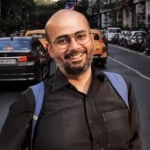Course Information
- 2023-24
- CIC213
- 5-Year B.A., LL.B. (Hons.), 3-Year LL.B. (Hons.), LL.M., Master's Programme in Public Policy
- III, IV, V
- Nov 2023
- Elective Course
How does this course relate to the programme curriculum: Does it develop on a prior course in the programme or is it a foundational or standalone course?
This course develops on prior courses generally and will attempt to introduce students to concepts of intersectionality rooted in Critical Race Theory (CRT) and the emergent domain of Critical Caste Studies (CCS). CRT has emerged in recent decades as a powerful intellectual movement within the domain of race studies particularly in the US. Informed by the thesis of intersectionality as introduced by Kimberlé Crenshaw and expansion of standpoint theory to include Black Feminist positions as articulated by Patricia Hill Collins, etc., CRT has become a cornerstone for interrogating the racist foundations of US social structures including law.
In the context of South Asia, especially India, CCS is an attempt is to build a parallel paradigmatic lens to understand caste privilege and power networks, turning the ‘academic gaze’ upside down. Law education in India, especially at the elite levels is considered out of sync with the social and cultural realities of the people—as such the course will also seek to investigate the structural- historical constructions of such caste discourses in contemporary culture, by using frames of analysis derived from the works of Bourdieu and Giroux, as well as interrogate the political economy of ‘knowledge production’ of caste itself. Finally, this course will also look at the intersectionality and intertextuality of the caste narratives with the emergent feminist, queer and constitutional dialogues currently at play in the social arena.
Describe how you have approached the course. What have you included/excluded and why? What is your choice of materials?
The course pedagogical approach will lean on epistemic co-creation theories as put forward by Paulo Freire and Henry Giroux– as well as seminar-oriented co-learning from lived narratives, relooking historical moments and intersectional social interventions within the modern era & future possibilities.
In keeping with the epistemic mandates of CRT & CCS, there is a deliberate attempt to minimize texts written/created by historically privileged groups. Attempt has been made to platform the overlooked academic works of Dr. Ambedkar and anti-caste activist/scholars’ commentaries on the politics of knowledge-production on debates on caste related themes, especially in the legal domain.
Describe your pedagogical method: lectures, Socratic discussion, seminar style discussion, response papers or group work, field work etc.
The pedagogy involves a mix of lectures and Socratic discussion method. It will also seek to lean on Buddhist ‘Sangha-ology’ methods which intertwine discourse with the material and metaphysics of identity, self, the social and the nature. There will be an attempt at inverting/subverting hegemonic epistemic ‘gaze’ and build upon the lived reality narrative truths offered by historically marginalized groups. The course will also make use of screenings of cinematic texts to bring temporal liminalities and subvert conventional visual understandings of being and self in the context of structural violence, resilience and assertion. One of the evaluation meters of the course will also be the ‘Reflection Project’ wherein the students will be expected to write a weekly reflection journal based on the discussions within the class & reflections outside of it. Grading will be based on the richness, thickness of the reflection and consistency thereof.
Describe the layout of the course: modular structure and sequentially paced


